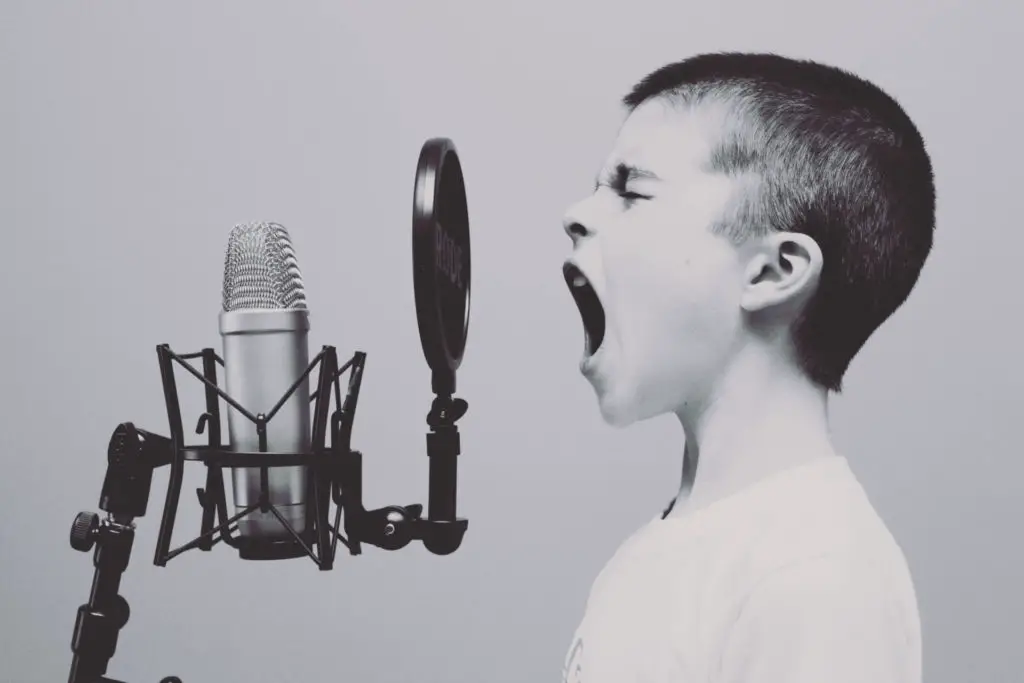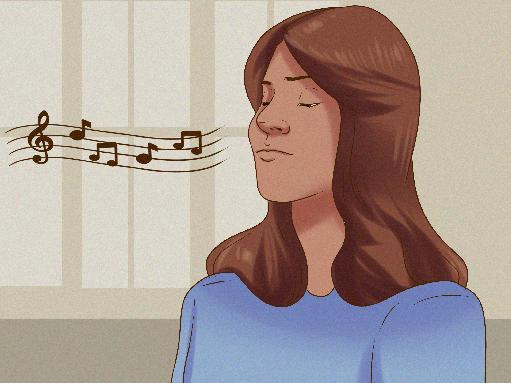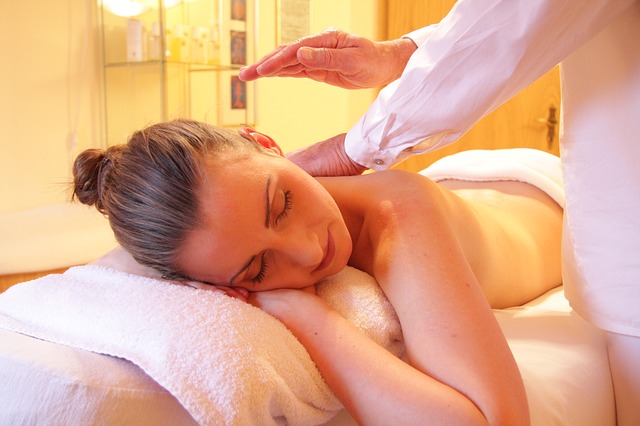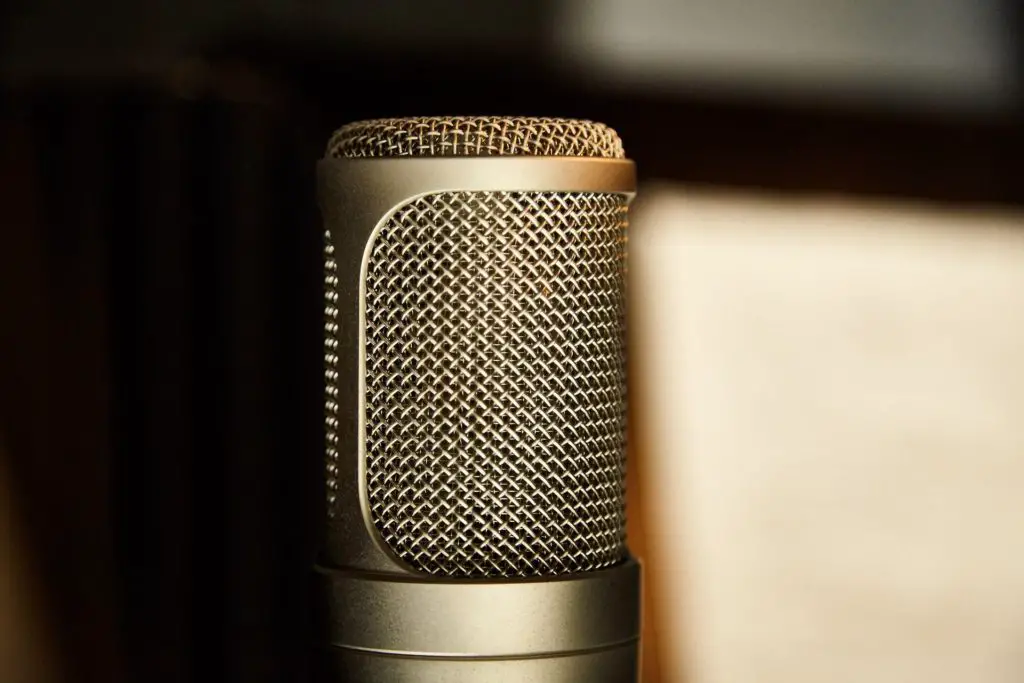Vocal warmups are exercises for an actor’s voice. Acting is physical, vocal, mental, and emotional work that requires preparation to operate at peak performance.
An actor’s body, vocals. and mind need to be warmed up to deliver their best performance to the audience.
When voice actors use their voices a lot, it can lead to muscle and tendon problems. Overuse can weaken these muscles and tendons to the point of damage.
Vocal warmups are not only great for protecting your vocal well-being, but they also prepare your voice before you engage in vocal work. The vibrations that come with these types of performances can be quite intense so getting a lot of practice beforehand is a must.
Healthy, strong muscles and tendons create more pliable vocal cords that provide more range, flexibility, and control invoice.
We have compiled 8 vocal warmup exercises that you can use in order to get your voice ready for a performance.
TIPS ON VOCAL WARMUPS
- Choose a time of day that is convenient for you.
- Warm-up your voice with a few minutes of humming and singing.
- Sing a song or recite an excerpt from a favorite poem or passage from literature.
- Practice the pronunciation of consonants, vowels, and words with difficult sounds.
- Vary your pitch and volume to avoid straining your vocal cords.
WHY DO YOU NEED TO DO VOCAL WARMUPS?

Warming your voice up before singing can make a big difference. Not only will you feel more confident, but it also prevents injury and vocal strain in the long run.
If you want the best voice possible, it’s important to warm up. You should do it often, so your voice stays fresh and healthy – ultimately causing less damage to your vocal cords.
A voice warm-up is an important part of a singer’s routine. It can also be beneficial when singing because it can reduce strain and allow singers to produce a higher range, therefore, sounding better.
The more you use your vocal cords, the more versatile your voice acting abilities will be.
As a singer or an actor, if you get behind the microphone feeling tense or stressed, you’ll sound tense and stressed. But, if you get into the booth feeling chilled and happy, your voice will be more emotional and relaxed.
VOCAL WARMUPS BRING YOU RIGHT UP TO YOUR BEST VOICE.

By gradually putting your voice through its paces, you’re able to loosen it up and get your blood circulating through all the different parts that make up your voice box.
Warmups grow your skills as a singer.
Warmups prepare you for the intense vibrations that come along with singing.
Controlled vocal exercises will help increase the acid levels in your vocal muscles, which will then allow you to have more control over your voice. When it comes to properly and regularly exercising your voice, you will be able to build on your abilities and become a much more effective singer in the long term.
Warmups allow you to sing in a controlled, stress-free way. They don’t strain your vocal cords and allow for maximum possible use of your voice.
WHEN SHOULD YOU DO VOCAL WARMUPS?

Ideally, you should perform vocal warmups every day.
Also, when you feel your voice is getting hoarse or tired, it’s time to do vocal warmups.
Vocal warmups can be done anywhere and at any time, but they are especially important before a performance or after singing for an extended period of time.
VOCAL WARMUPS FOR ACTORS AND SINGERS
Warming up before you sing is super important to have a killer session.
To perform at your peak.
If done regularly, these exercises can increase your abilities as an actor or singer and also of your vocal range, your confidence on stage by reducing your tension, and keep your vocal cords all intact too.
ENHANCE YOUR VOICE WITH THESE 8 VOCAL WARMUPS EXERCISES
1. Stretch your body

Side stretches are great for expanding your rib cage and making your lungs feel like they are full of air.
First take a deep breath and raise your arms up to the sky.
Exhale and lean to the left, you will feel a stretch run up your side.
Hold it there for just a couple of seconds before you inhale to center, and then exhale over to the right
Next, stand with your feet shoulder-width apart.
Inhale your arms up to the sky, then slowly bend at your waist on the exhale and take your hands towards the ground.
It doesn’t matter how far you can go.
Simply by shaking out the neck and shoulders, with some minor stretches and rolls in all directions, they can loosen up your neck, vocal cords, and throat muscles.
2. Breathing exercise

Breathing exercises are an ideal way to relax your vocal cords before a big recording, and they’re bound to help expand your vocal range.
“Breathing exercises are an essential part of any vocal regimen.”
Achieving a deep breath is crucial for clearing the throat, chest, and vocal cords.
You should start by taking a few deep breaths in through the nose and out through the mouth.
If you want to exercise your voice before singing or recording, start with “oohs” to break up any clogs in your throat.
3. Humming and lip trills
Practice humming, or simply inhaling and exhaling, with a straw in your mouth.
When you put your lips around a straw, you should automatically focus on your breathing and stay still.
Humming is a great vocal warmup because it doesn’t put too much strain on your vocal cords. It also helps you stay in tune with your range, and prepares you for more complex exercises.

Place the tip of your tongue behind your bottom front teeth and hum up and down the major scale while keeping your mouth closed.
Performing a gentle, soothing tune is a good way to ease facial muscles and create space for sound vibrations.
Humming and lip trills make your throat begin to buzz after you’ve undergone several hours of sleep.
This should be the first thing you focus on in the morning to restore your vocal tone.
These exercises help induce blood to flow to your vocal cords, activate your larynx, and remove excess tension in your mouth and throat.
Also, curl your tongue and roll your R’s as you go through your range from low to high.
It’s important to avoid going too heavy or too light on your training regimen. Don’t strain yourself by going beyond and don’t slack off by not doing enough .
4. Descending on nasal consonants
Nasal consonants are sounds produced by narrowing the air passage and allowing air to escape through the nose. They can be found in all languages.
There are three types of nasal consonant:
– Nasal mutes (b, d, g)
– Nasal continuants (m, n)
– Nasal vowels (a, i)
One of the favorite vocal warmups for many voice actors is reciting words that end in a Z, like ‘buzz’ or ‘fuzz.’ Linger on the Z to get resonating.
Or say the word “onion,” stretching the “ny” sound and voice it downward in pitch.
5. Tongue twisters

Tongue twisters are a great exercise for the tongue and the vocal cords.
Tongue-twister are a type of word puzzle that try to confuse the speaker’s tongue.
There are a number of important factors that make up a stellar performance, but being able to clearly pronounce your words is at the top of the list.
These vocal warmups will help actors with enunciation and stamina, as well as strengthening voice control.
If you don’t articulate or enunciate clearly, no one is going to understand a word of what you are saying.
Examples of tongue twisters:
A big black bug bit a big black bear.
She sells seashells by the sea shore.
Peter Piper picked a peck of pickled peppers.
6. Yawn

Yawning is nature’s way of regulating oxygen levels to our tissues.
One of the many benefits of yawning is that it stretches your soft palate, which affect the airflow.
If you’re looking to improve your voice, yawn a lot.
It relaxes your vocal cords and throat muscles.
And once they’ve relaxed, your tone drops and your voice sounds better.
Process:
Yawn (take in air) with your mouth closed, then, exhale through your nose as if you are sighing.
7. Open vowels

For a more powerful singing voice, it can be helpful to take time during your practice sessions to keep your mouth open while you sing.
Start with singing ‘oo’ (as in cook) in a five-tone scale. Begin at the upper middle of your range and work down in half steps.
Practice saying a, e, i, o, and u with the correct mouth shape & opening your throat muscles.
After this, you can practice the same technique with the consonants, nothing the vowel sounds within each of the consonants.
When you close your consonants, the song you are singing will sound inappropriate because it has a physical effect on the muscles in your larynx and on the position of your vocal folds.
Thats one of the resons why you have to master how to pronounce your vowels and consonants, this way you will be able to change your tones without losing control.
8.Get a massage

The massage is meant to relax your body and get rid of any tension you might feel in your muscles. It is mostly for your face, neck and shoulders.
You can start by slowly rubbing your forehead, going down to your cheeks, nose, then finally your chin and jaw.
All the while, make sure to maintain small, circular movements and softly cover every inch of your face and head.
CONCLUSION
The voice is one of the most important assets that an actor uses to give a performance.
It is the voice that carries the emotions, nuances and moods of the character.
The voice can convey subtlety, which cannot be done through body language or facial expressions.
Its also worth mentioning that many actors have difficulty conveying their characters’ voices and emotions.
This is because they are not trained in this aspect of acting, but this can be overcome with some preparation and practice.
By following the tips and techniques discussed above you can add longevity to your voice and avoid straining or injuring your vocal cords.
Your voice is one of your strongest assets, and as such, it’s important that you take care of it.
It’s important to remain hydrated and avoid things like smoking and excessive alcohol consumption if you want your voice to be at its best.
Leave a comment with your opinion or any questions you may have below…


